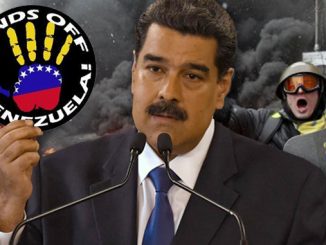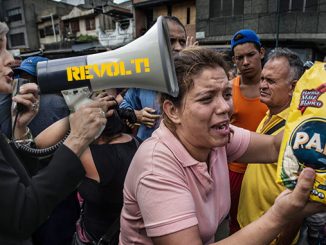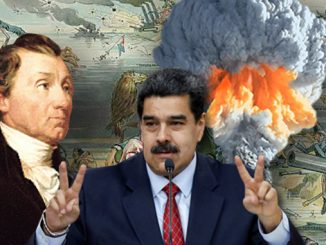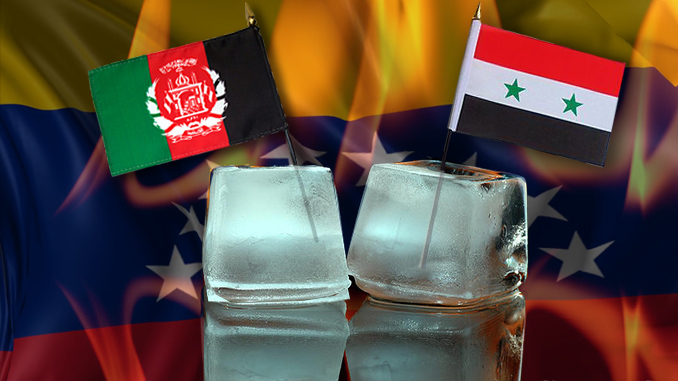
U.S. dirty tricks in Venezuela, like the previous decades of covert action intended to destroy nations throughout Latin America, are designed to cripple the nation’s resistance to U.S. hegemony.
By S.T. Patrick
Assuming the Russiagate story were completely true, the Trump campaign would be guilty of encouraging Russian social media trolls to flood Facebook with political attack ads as hackers chipped away at Democrat emails. The Trump campaign would be guilty of encouraging the leaking of those emails, some of which were stored illegally on Secretary of State Hillary Clinton’s personal home server. They would be guilty of campaign dirty tricks that have become commonplace in American political campaigns since the late 1960s. If all of that were true—and it’s becoming clearer by the week that very little of it was—then that still would not even approach the dirty deeds that American presidential administrations have engaged in throughout Venezuela for decades.
Most recently, it began with a telephone call from D.C. Vice President Mike Pence phoned Juan Guaido, a mid-level politician of the opposition far-right party who had recently been closely associated with street violence across Venezuela. Upon the end of the Pence call, Guaido immediately declared himself president of Venezuela.
Writing for the anti-war website “GrayzoneProject.com,” journalists Dan Cohen and Max Blumenthal called Guaido the “previously unknown political bottom dweller (who) was vaulted onto the international stage as the U.S.-selected leader of the nation with the world’s largest oil reserves.”
The U.S.-supported coup d’etât was immediately backed by typically pro-war, pro-interventionist American media outlets such as The New York Times, The Wall Street Journal, and “Bloomberg News.” Among the rubber-stampers were Canada, Israel, parts of western Europe, and the far-right Latin American countries known as the “Lima group.”
Just what Guaido is and why he was chosen for this role seems to be debated among observers of Latin American politics.
Diego Sequera, a Venezuelan writer and journalist, told “Grayzone,” “Guaido is more popular outside Venezuela than inside, especially in the elite Ivy League and Washington circles. He’s a known character there, is predictably right-wing, and is considered loyal to the program.”
That “program” appears to be the covert operation by which U.S. intelligence-backed infiltrators are placed in positions of power in foreign governments so that they can ascend to prominence, destroying a nation’s structure in the process. The U.S. and the international banking powers (World Bank, International Monetary Fund etc.) can then descend upon the crippled country, force predatory loans, gain control of the most valuable natural resources, and then control that country from the board room rather than the battlefield.
Cohen and Blumenthal write, “But this is precisely why Guaido was selected by Washington: He is not expected to lead Venezuela toward democracy, but to collapse a country that for the past two decades has been a bulwark of resistance to U.S. hegemony. His unlikely rise signals the culmination of a two decades-long project to destroy a robust socialist experiment.”
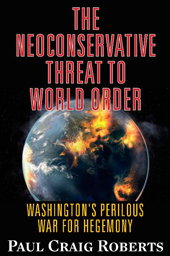
The U.S. has targeted Venezuela since the rise of Hugo Chavez in 1998. Chavez survived a variety of assassination plots throughout the administrations of presidents Bush and Obama. Upon his death in 2013, Nicolas Maduro became his successor, who in turn survived three assassination attempts on his own life.
The anti-Chavez student operation began its training in 2005 in Serbia. The training was supplied by the Center for Applied Non-Violent Action and Strategies, or CANVAS, a group that receives a majority of its funding through the National Endowment for Democracy. The NED is a CIA cutout and is largely responsible for serving as the U.S. government’s main outlet for regime-change activities. They topple dictators, but not just any dictator; the NED topples dictators the U.S. government opposes. Leaked emails from Stratfor, a private intelligence group some have labeled as the “shadow CIA,” reveal that “[CANVAS] may have also received CIA funding and training during the 1999/2000 anti-Milosevic struggle.” These are the same people and the same lending trees that now touch the U.S.-backed coup in Venezuela.
At press time, President Donald Trump has called an anti-Maduro military intervention in Venezuela “an option.” Russia has warned against this kind of “destructive meddling.” China and Turkey also oppose the move.
When looking at geopolitical movements, it is wise to look at actions and principles rather than flags, propagandistic labels, and symbology. Looking past “evil empire,” “axis of evil,” and “troika of tyranny” to see the covert attempts at colonial and financial intervention can show us what we have failed to see behind terms like “socialist,” “dictator” or “liberty.” Words do have meaning, but actions are even more telling. Though the Trump administration has made positive recent inroads toward peace in Syria and Afghanistan, the actions that have been taken in Venezuela are ultimately troubling. Cooling one international hot zone does not justify igniting another elsewhere.
S.T. Patrick holds degrees in both journalism and social studies education. He spent 10 years as an educator and now hosts the “Midnight Writer News Show.” His email is [email protected].

